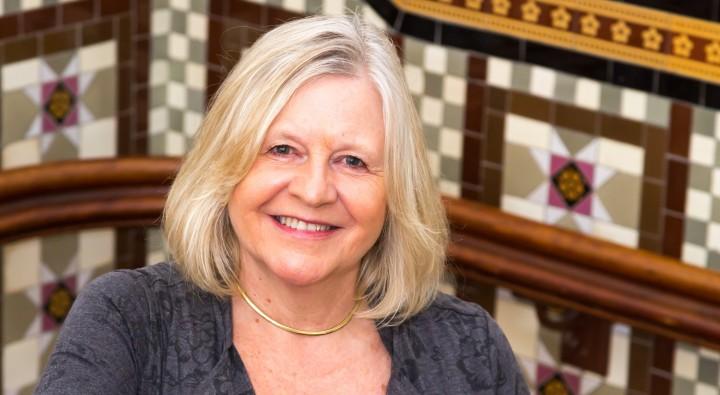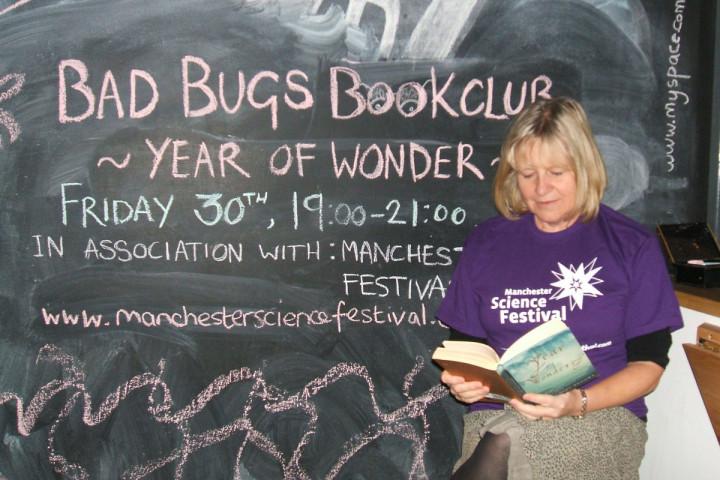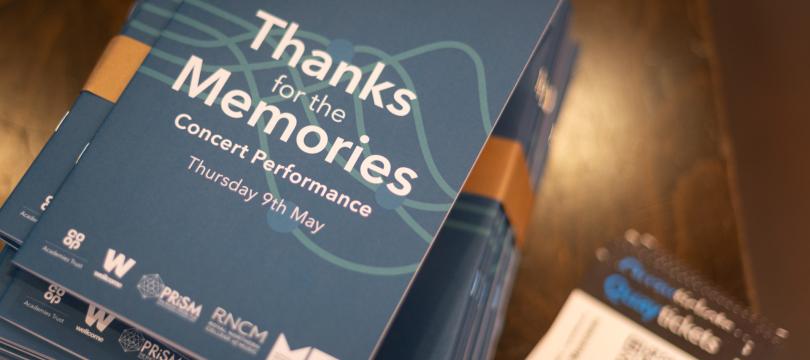In conversation with award-winning Professor Joanna Verran

This February Joanna Verran, Emeritus Professor of Microbiology at Manchester Metropolitan University, was awarded the 2019 Mani L. Bhaumik Award for Public Engagement with Science from the American Association for the Advancement of Science. This prestigious award recognises an individual’s contributions to public engagement. As her Pro-Vice-Chancellor for Education remarked, "Jo advocates public engagement as an academic discipline".
The NCCPE’s Sophie Duncan spoke to Jo about her engagement experiences, and what it feels like to be an international award winner.
You have just won an award – what does it feel like to be the AAAS Public Engagement with Science Award winner?
It was wonderful! It's so exciting to have received an award from a global organisation that publishes the journal Science, and it's great to have this award for work I've done as part of my job as Professor of Microbiology.
What got you started?
It was an evolution really. When I started my career as an academic, I did a lot of teaching. I thought a lot about how to make teaching enjoyable for me and the students, and how to make it effective. I noticed how different approaches were needed to support how students learn, so now I try to get students to think about all the skills they have and how they could use these skills to help them learn about microbiology. My love of teaching also taught me such a lot about engaging different people with my research, and these skills were perfect when thinking about developing engagement with the public. For me, the launch of the Manchester Beacon for Public Engagement was most timely, and it led to me doing more public engagement, with the support of Sam Gray, MMU’s Beacon manager, who helped me develop my ideas.
What or who has inspired your work?
Every year I've done something with the Manchester Science Festival. You get to collaborate on ideas and co-produce events, thinking about different ways to communicate science to others. I've been involved in other festivals and events, and something I've particularly enjoyed is working across different disciplines including working with artists and writers.
Are there approaches you are particularly proud of?
I began to explore how science is represented in fiction and I set up the Bad Bugs Book Club. It brings scientists and non-scientists together to read novels where infectious disease is part of the plot and to talk about them. This year is our 10th anniversary. We've read 60 different books, and have shared reading guides and meeting notes on our website for others to use. People come to a book club meeting on a level playing field – everyone has something special to bring. I wish I had disseminated this resource more widely.
These activities made me think about the way scientists write and how they communicate - trying to make the writing more warm and enthusiastic, not dry and abstract. I now do creative writing myself - I am learning all the time!
I've worked on lots of projects, and I always try to publish what I have done. Not because I am a megalomaniac – but because if you care about engagement, you want to ensure the work is accessible to others.
Through volunteer work, the STEM Ambassador scheme, internships and undergraduate projects. Assessing undergrad public engagement projects is done in the same way as lab-based projects – the students have to explain the what, why, how, how do you know it worked, and what you learned from it. Engagement needs to be rigorous, in the same way lab work needs to be.
The Beacons project sought to change academic culture – did it work?
Things have changed a lot, for the good:
- The Beacons provided an opportunity to have space to reflect on public engagement and what it meant, and to share ideas with others.
- I think that engagement is increasingly entering into academic culture. Perhaps it has been easier in other disciplines than science – as science is particularly driven by research outputs and income. Public engagement now has a role in 'pathways to impact', and in REF impact case studies.
- There are more cross-disciplinary activities, with researchers working together to engage with different publics.
- Public engagement has become a discipline in its own right – with journals and plenty of MSc courses in science communication.
Do you have any advice for researchers wanting to engage the public with their work?
Be sure you know what you are planning to do, but be open to different ways of doing it.
What's the worst example of engagement you've worked on?
One of the challenges can be being over-ambitious. I created an activity about viruses where people had to proceed around different stages of an activity. Getting people to go on the right route and capturing them at the end was really difficult. I had spent too much time designing great activities, and not enough time thinking about how to get people to move around the space.
What’s next for you?
This year is the 10th year of Book Club, and I'll be hosting events at the Penzance Literary Festival and Orkney Science Festival with support from the Society for Applied Microbiology. I'm also involved in events at Cheltenham Science Festival and Bradford Literature Festival. Next year, to coincide with the 75th anniversary of the Microbiology Society, there will be a Book Club element.
What would you change?
I would introduce public engagement into the workload model, so everyone recognises that it’s part of our job. It's not just our duty to do what we do but for others to be aware of what we do and why - for example, what public money is spent on. That’s not to say that everyone should do engagement, but those who do should get the time and recognition for it.
Is there anything you wished I had asked?
I started doing public engagement quite late in my career. I was lucky that I already had an established research career, so I could do both. Public engagement with research can sink or fly based on where it hits people in their career journey. It would be great to be able to support engagement activity across all career stages.


